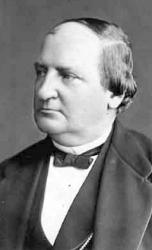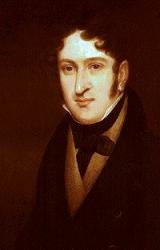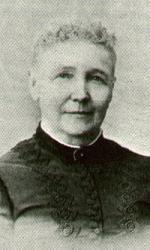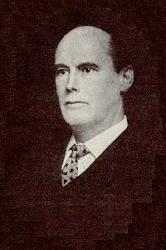Planning worship?
Check out our sister site, ZeteoSearch.org,
for 20+ additional resources related to your search.
- |
User Links
Person Results
‹ Return to hymnal




Export as CSV
Franz Abt

1819 - 1885 Hymnal Number: 78 Composer of "[Hear the Temp'rance call]" in The Temperance Songbook Franz Abt, born Dec. 21, 1819 at Eilenburg in the Prussian provinces of Saxony. His father was a musician and clergyman of the Lutheran Church. Franz studied music at Leipsic, and became known as a song-writer in 1838. In September, 1841, he married, and was leader of the orchesta at the Zuric theatre; became a teacher in 1842, but was litle known until his song "When the Swallows Homeward fly" carried his name to all parts of the civilized world. In 1865 was concert-master at Brunswick, and conducted the great festival at Dresden. He came to the United States in 1872, and was present at teh Peace Jubilee, Boston, where he directed the performance of some of his own music, arriving in New York May w, wher a testimonial concert was given for his benefit at Steinway Hall, May 18. He was received at Philadelphia by the German societies, with torch-light processions and cannonade, May 15, 1872.
A Dictionary of Musical Information by John W. Moore, Boston: Oliver, Ditson & Company, 1876
Franz Abt
Henry R. Bishop

1786 - 1855 Person Name: H. R. Bishop Hymnal Number: 46-2 Composer of "['Mid scenes of confusion, of drunkenness and crime]" in The Temperance Songbook Bishop, Henry Rowley, was born at London, Nov. 18, 1786, and died at London, April 30, 1855. See a full notice in the Dictionary of Nat. Biog., v., 91. From 1840 he was occasional and from 1843 to 1848 sole conductor of the Antient Concerts. Of his Twelve Corales...as sung at the Concerts of Ancient Music, for which (with Words expressly written to them) they were adapted and arranged by Sir Henry R. Bishop, 1844 (B. M. copy is H. 878), some are fairly literal translations from the German, others have no connection with their nominal originals. Three were noted in this Dictionary, but their source not having been traced in 1892, we now subjoin them:—
1. Behold, how glorious is yon sky, p. 127, ii. This is from "Wie herrlich ist die neue Welt" in C. H. Graun's oratorio Der Tod Jesu, 1756 (B. M. copy, 11. 1805, catalogued as 1766), the words being by Karl Wilhelm Ramler, b. Feb. 25, 1725, at Colberg, in Pomerania; 1748, Professor of Literature at the Cadet School in Berlin; d. at Berlin, April 11, 1798.
2. God is our Refuge in distress, Our Shield, p. 325, i.
3. O let us praise the Lord, With hearts of true devotion, p. 963, ii., No. 4. The Winchester Hymn Book, 1857, alters stanza i., the original line 1. 3, 4 being:—
"Whose spirit roams abroad,
To calm life's troubled ocean."
Another fairly close version is,"Wake, O wake! a voice is crying," from "Wachet auf," p. 805, ii. [Rev. James Mearns, M.A.]
--John Julian, Dictionary of Hymnology, New Supplement (1907)
Henry R. Bishop
Harriet E. Jones

1823 - 1915 Hymnal Number: 40 Author of "Drive Him Out" in The Temperance Songbook Harriet E. Rice Jones, 1823-1915
Born: April 18, 1823, Pompey Hollow, Onondaga County, New York.
Died: 1915, Binghamton, New York.
Buried: Oran Community Church Cemetery, Pompey, Onondaga County, New York.
Daughter of Eleazer Rice, Jones lived in Onondaga County, New York. Her girlhood was spent on a farm, receiving what education the country schools and one term at high school could provide. She was always fond of reading, and was a great singer, with a clear ringing voice. On July 7, 1844, she married a son of Rev. Zenas Jones; her husband died in 1879. Her song writing career began when her poetry came to the attention of Dr. M. J. Munger, who asked if she could write some Sunday school hymns for him. She went on to write for Daniel Towner, J. C. Ewing, the Fillmore brothers, and others.
--hymntime.com/tch
Harriet E. Jones
A. F. Myers
Hymnal Number: 49 Composer of "[Sisters, be to Jesus true]" in The Temperance Songbook Augustus (Gus) Franklin Myers USA 1850-1902. Born at Ashland, OH, he was a music composer and publisher. He may have taught music, as his title of ‘Professor’, is noted by one source. His song books include: “The life line”, “The search light” (1894), “The seed sower” (1897). He wrote many lyrics and tunes. He died at Toledo, OH.
John Perry
A. F. Myers
Colin Sterne
Hymnal Number: 32 Author of "Marching Beneath the Banner" in The Temperance Songbook Pseudonym, See also Nichol, H. Ernest, 1862-1928
Colin Sterne
J. D. Chambers
1805 - 1893 Person Name: Chambers Hymnal Number: 52 Author of "Somebody's Boy" in The Temperance Songbook Chambers, John David, M.A., F.S.A., son of Captain Chambers of the R. N., was born in London in 1805, and educated at Oriel College, Oxford, graduating with honours, in 1827 (M.A. 1831). He was called to the Bar by the Inner Temple in 1831. In 1842 he published an elaborate treatise on the Jurisdiction of the Court of Chancery over the persons and property of Infants, and was appointed Recorder of New Sarum the same year. At Salisbury his attention was specially attracted to the Liturgical and other Ecclesiastical lore appertaining to the Cathedral, and to St. Osmund, its Bishop, 1078. St. Osmund compiled from different sources a series of Divine Offices, and Rules for their celebration within his diocese. These Rules were in two parts, the Ordinals, and the Consuetudinary.
The use of these Rules became very extensive; and although in certain parts the Uses of York, Hereford, Bangor, and Lincoln varied, yet John Brompton, the Cistercian Abbot of Jervaulx, writing within a hundred years after St. Osmund's death, eays that these Rules and Offices had been adopted throughout England, Wales, and Ireland.
About 1230 (after the opening of the New Cathedral at Salisbury) these Rules were collected and rewritten in a complete volume, entitled Tractatus de Officiis Ecclesiasticus (manuscript in the Cathedral Library). In the mean time the Ordinale had become partly welded into this Consuetudinary, and partly (especially that portion therein omitted from Maundy Thursdav to Easter Eve) incorporated in the Breviary, Missal, and Processional, which had assumed definite shapes. From these materials, together with the aid of several manuscripts and early printed Breviaries, Mr. Chambers published a translation of:—
The Psalter, or Seven Ordinary Hours of Sarum, with the Hymns for the Tear, and the Variations of the York and Hereford Breviaries, Lond. 1852. This was accompanied with a Preface, notes, and illustrations, together with music from a manuscript folio Antiphonary or Breviary of the early part of the 14th cent, (in the (Salisbury Cath. Lib.) collated with a similar ms. folio (Lansdowne, 463), both of Sarum Use. The hymns with their melodies, and the Canticles, were also collated with a MS. of the 14th cent. (Harl. 2951).
Mr. Chamber's subsequent publications include:
(1) The Encheiridion; or, Book of Daily Devotion of the Ancient English Church according to Sarum Use. Lond. 1860. To this a number of the appropriate Hymns and Collects were added. (2) A Companion for Holy Communion for Clergy or Laity; with a Prefatory Office for Confession, from the Ancient English Offices of Sarum Use, 3rd ed. 1855. This was accompanied with notes and authorities. (3) Lauda Syon, Ancient Latin Hymns of the English and Other Churches, Translated into corresponding Metres, Pt. i. 1857; Pt. ii. 1866. (4) An Order of Household Devotion for a Week, with Variations for the Seasons and Festivals, from the Ancient English of Sarum Use. Lond. 1854. (5) A Complete & Particular, yet concise account of the mode of conducting Divine Worship in England in the 13th and 14th centuries, contrasted with and adapted to that in use at the Present Time. Lond. 1877. (6) A translation from the original Greek of the genuine works of Hermes Trismegistus, the Christian Neoplatonist (A.D. 60), with notes and quotations from the Fathers.
Mr. Chambers's publications and translations have had no small part in stimulating the great change which has taken place in the mode of worship in the Church of England. His translations of Latin hymns are close, clear and poetical; they have much strength and earnestness, and the rhythm is easy and musical. Those in common use are mainly from the Lauda Syon. Greater use, however, might be made of these translations than has been done. Their earnestness and dignity would raise the tone of many collections. Died Aug. 22, 1893.
--John Julian, Dictionary of Hymnology (1907)
J. D. Chambers
W. T. Giffe

1848 - 1926 Hymnal Number: 65 Composer of "[Come, let us sing of fount and spring]" in The Temperance Songbook Born: June 28, 1848, Portland, Indiana.
Died: July 13, 1926, Seattle, Washington.
Buried: Mount Hope Cemetery, Logansport, Indiana.
Giffe grew up in College Corners, Indiana (near Portland), and served in the Army during the closing days of the American civil war. After the war, he attended Liber College, and studied law for two years. While in college, he was a member of the college glee club, and took lessons in the college singing school. Later, he studied with teachers such as J. W. Suffern, George Root, Luther Emerson, Horatio Palmer, and Henry Perkins.
Giffe had a fine baritone voice, and was in demand as a concert singer. He soon became popular as a chorus director and convention conductor. His first book for singing schools was New Favorite, which sold thousands of copies. The Oliver Ditson Company of Boston, Massachusetts, published many of his early works, but Giffe went on to form his own publishing house, the Home Music Company, in Logansport, Indiana. He also edited the Home Music Journal for several years. Later, Giffe became supervisor of music in the public schools in his home town. And he was one of three men selected to deliver an address in Logansport, Indiana, at the memorial services for assassinated president William McKinley.
Giffe and his wife Nancy had no children. His works include:
The Brilliant, 1874
Crown of Gold, with Frank Davis (Logansport, Indiana: Home Music Company, 1892)
The New Deal, with Louis Eichhorn (Logansport, Indiana: Home Music Company, 1898)
A Practical Course in Harmony and Musical Composition
--www.hymntime.com/tch
W. T. Giffe
W. W. Pinson
Hymnal Number: 34 Author of "The Whiskey Shops Must Go" in The Temperance Songbook
W. W. Pinson
W. H. Ruebush
1873 - 1956 Hymnal Number: 37 Composer of "[Our army calls for volunteers]" in The Temperance Songbook William Howe Ruebush (Will H. Ruebush)
1873-1956
Born: June 4, 1873, Singers Glen, Virginia.
Died: October 6, 1956, Elkton, Virginia.
A vocal music teacher early in his career, Ruebush directed an army band in France in World War I. After the war, he led many civilian orchestras and bands, and taught at several schools, including the Shenandoah Conservatory of Music in Dayton, Virginia. He composed many marches, including The Stonewall Brigade March, Shenandoah, and the Alma Mater Song for Tulane University. Ruebush spent most of his life in Dayton, Virginia, where he became president of the Ruebush-Kieffer Publishing Company.
Lyrics--
Cross Goes on Before, The
He Rolls the Stone Away
I Am Happy
Scatter Sunshine
Music--
--www.hymntime.com/tch
W. H. Ruebush
Mary Irene McLean
Person Name: Mrs. Irene McLean Hymnal Number: 49 Author of "Sisters, Be to Jesus True" in The Temperance Songbook
Mary Irene McLean


 My Starred Hymns
My Starred Hymns


